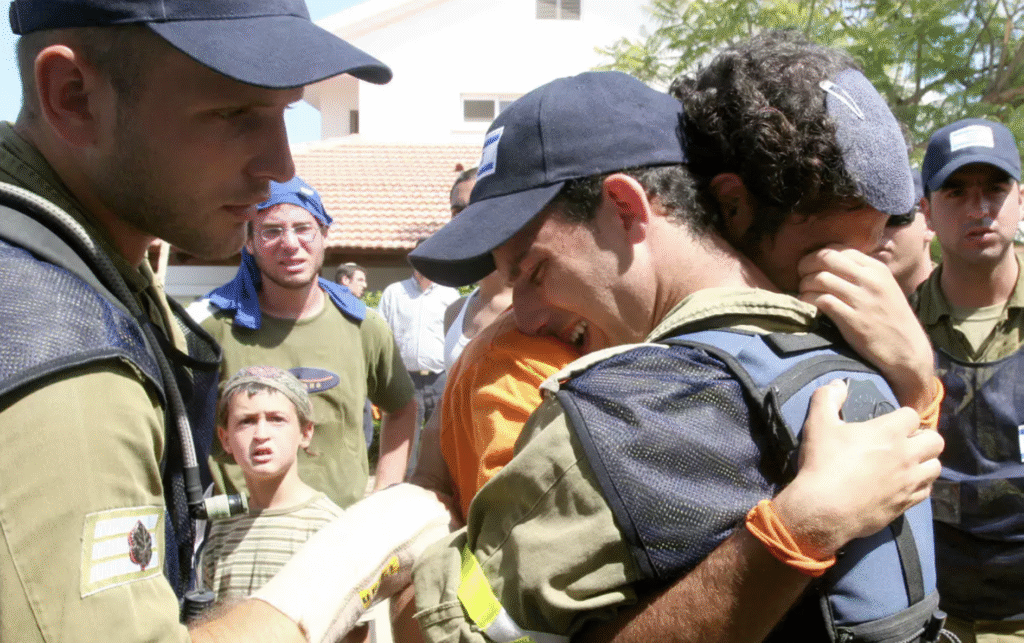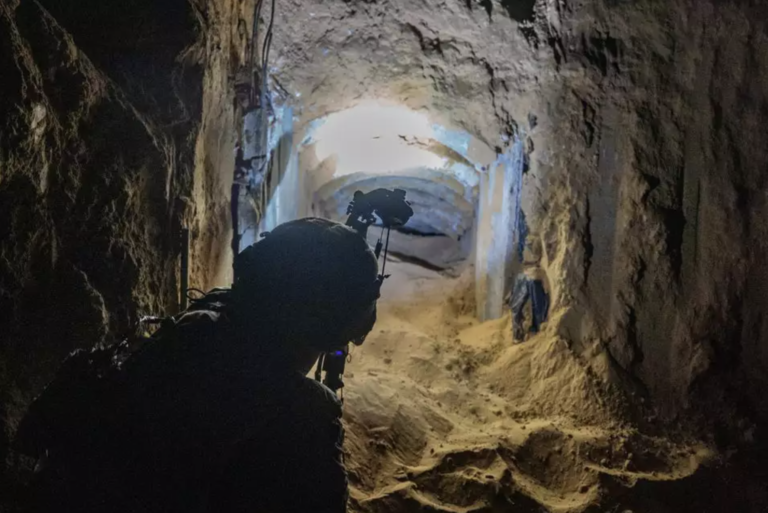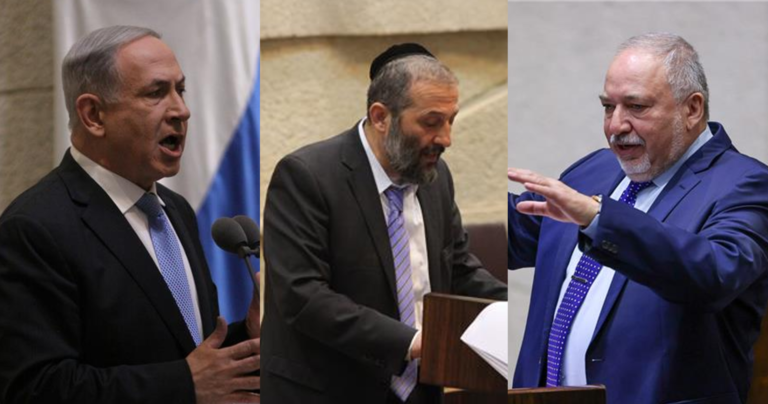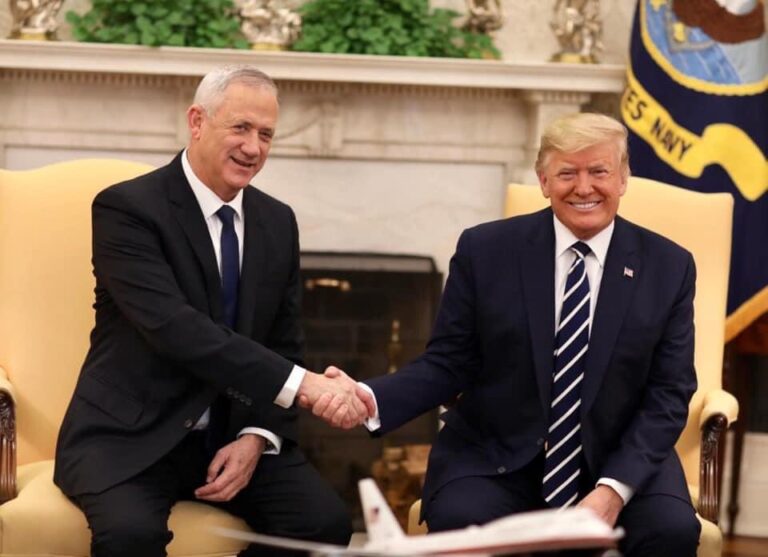As Israel marks 20 years since its withdrawal from Gaza, I reflected on it — and the tragic mistake that it was — in my new Shabbat column for Israel Hayom. You can read it on Israel Hayom’s website here.
***
During my final exit from the Israeli moshav Ganei Tal, where I served as a correspondent for the Galei Tzahal radio station, after every tear had been wept, every Psalm recited in the synagogue, every evacuee had spoken all their words to the soldiers, a Gush Katif resident took his stand. He raised a modest sign, A4-sized, bearing the inscription “Terror won.” That sign occupied my thoughts until reaching the Re’im base in southern Israel, where the evacuation forces and numerous journalists with sparkling eyes had positioned themselves.
This protester, undoubtedly expelled from his home the following day, identified the most elemental issue in the uprooting of Gush Katif. Before this evolved into legal violence (“preparing for dictatorship,” Uri Orbach termed it then). Before becoming the narrative of sectarian and religious division. Before the unprecedented political promise-breaking story in Israeli history, before everything else — this remained a straightforward question of whether disengagement would enhance Israel’s position against terrorism, or deteriorate it. Gaza’s battle was waged on security grounds, not religious or moral ones, and there the verdict was rendered.
One protester along the Ganei Tal-Katif route declared conditions would worsen, yet he stood essentially isolated. Complete security and political leadership rallied to proclaim improvement was coming. Before the Likud functionaries’ referendum, Israel’s Channel 2 hosted a compelling debate between opposing Benny Begin and supporting former Israeli Prime Minister Ehud Olmert. “Fighting in Gaza requires no dozens of communities lacking any chance or future for survival. This applies equally to Nablus and everywhere,” Olmert declared. Begin countered, “Gush Katif’s synagogue could transform into a mosque, continuing incitement and terror operation planning against Israel.” Olmert responded, “You guarantee functionaries eternal terror, we guarantee opportunities for change.”
Then-Defense Minister Shaul Mofaz pronounced on referendum day, “I forecast terror levels will decline.” Regarding the Qassams, then possessing merely five-kilometer range, Mofaz explained, “Through IDF preparations before, during and following disengagement, IDF flexibility against Gaza Strip threats will expand, including enhanced missile response capabilities should they emerge. Our plan targets Gaza’s terror infrastructure, emphasizing leaders, operatives and Hamas capabilities.”
Consider ‘Mr. Security’ himself, then-Israeli Prime Minister Ariel Sharon. Before disengagement implementation, the Saturday night following Tisha B’Av, Sharon declared, “This plan serves Israel under any future circumstances. We minimize daily confrontations and casualties for both sides. The IDF will restructure along defensive boundaries, beyond the security barrier. Those persisting in fighting us will encounter the IDF and security apparatus at maximum capacity.”
Weeks before the Simchat Torah massacre, the IDF’s Southern Command commander during the disengagement, Dan Harel, clarified in an interview, “We knew Gaza would become Hamastan, but that’s better… The border is clear, we built it very well… very stable, no infiltrations.” Supporting his position, he characterized this as “a security initiative proven by time.” His interviewer provided numerical justification regarding “In two years in Southern Command, 54 soldiers were killed, so the 18 years that have passed since would have cost 500 soldiers.” Nearly 900 soldiers have perished since in Gaza conquest operations, yet he remains silent on apologies.
One faction envisioned post-Gush Katif futures featuring rockets, tunnels, missiles and incursions. The opposing faction portrayed post-Gush Katif scenarios emphasizing serenity, development and unrestricted international intervention in Gaza when convenient. The former proved absolutely accurate, the latter absolutely mistaken. The situation remains that elementary.
Contemporary magnificent gaslighting, featuring patronizing eye-rolling whenever “disengagement” surfaces as though representing ancient history, intends obscuring the fundamental reality that disengagement opponents correctly anticipated every consequence they warned against, while supporters erred in every encouragement they offered. Without the disengagement, Hamas would never have had two commando divisions to storm our border. Without the Oslo Accords, retrospectively speaking, Hamas lacked Gaza as a capital for manufacturing Qassams and raid teams that murdered Gush Katif inhabitants.
The deception centers on the “disengagement plan” terminology. The plain truth is Gaza never had anywhere to go. Before President Donald Trump’s initiative, no genuine disengagement possibility existed from the terror sanctuary and demographic explosive. Sharon, strategically astute regarding settlers yet timid concerning Gazans, avoided launching Defensive Shield in Gaza fearing dozens of military casualties. Influenced by corrupt offspring and compromised media, he chose Rafiah Yam engagement over Rafah, producing known consequences.
It’s trendy these days to pin messianic thinking on the right. Fair enough. But the truth is that two messianic movements crashed head-on in Gaza: the religious-nationalist right that wanted to annex the Gaza Strip and pretended two million Palestinians didn’t exist because “it’s our land,” and the less talked-about secular-liberal left that believed pulling out would create a Gaza Riviera with high-tech and Singapore-style beach clubs.
The shrinking camp of disengagement supporters now makes two arguments. First, it could have worked differently. If we had just contained Hamas, fed them, and kept the Palestinian Authority out, there wouldn’t have been terror. But remember — Hamas took over first through elections in 2006, then through an armed coup in 2007, both direct results of the disengagement. All these people now criticizing the Qatari money transfers? They were the same ones preaching “containment” and “accommodation” for years. If they really wanted to destroy Hamas, they had plenty of microphones to scream about Qatari cash. A fraction of the energy they put into fighting judicial reform would have stopped that disaster.
Second, they claim the Oct. 7 massacre would have happened anyway. That’s incredibly brazen. It’s like a guy who sells you “diet chocolate,” forces you to eat it, then when you gain ten pounds says “Hey, you would have gotten fat on regular chocolate too.” The whole point was to pay a steep price at home to get better security, not end up with the same nightmare. Unless better security was never really the goal, because no sane group with hundreds of years of military experience would think running away from terrorists would make them put down their guns. Maybe the real goal was always to crush internal opposition in Israeli society. You know: the operation failed, but at least the patient died.









